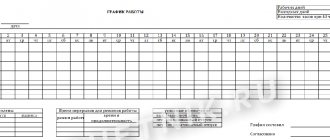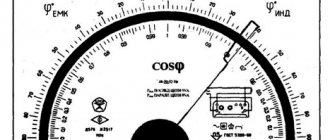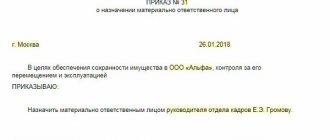The procedure for collecting shortages from the financially responsible person
A statement of claim for recovery of the deficiency is the lever that can force an unscrupulous employee to compensate for the damage. Even if a person simply disappeared or disappeared, this does not relieve him of responsibility. Therefore, the recovery of an employee’s shortfall can go through the court without the participation of the defendant with the help of our labor lawyer, who has repeatedly participated in similar procedures.
If an employer wants to go to court to protect his rights and restore lost or damaged property/goods, he must provide the court with evidence. Only if the evidence directly points to the employee, then can you expect to recover the amount of the deficiency.
Preparation of the evidence base in the case of recovery of the amount of the deficiency:
- carrying out inventory. It is necessary to completely count the goods in warehouses and document the shortage.
- receive a written refusal from the employee. Once a shortage is discovered, a notification must be given to the employee. This is necessary in order to correctly file a claim for recovery of the seller’s shortfall. The notice must include a requirement to repay the debt or pay a fine. The employee must refuse the notice in a response letter.
- employment contract. In order for the court to give a positive response to the employer’s demands, the latter must prove the fact that the employee worked legally.
- additional papers. Here you can prepare reports, reporting documents and information from other employees.
Shortage in informal employment
As practice shows, often heads of organizations do not sign an employment contract with a candidate when hiring. A person is hired and not registered according to the Labor Code of the Russian Federation, and they also do not sign an agreement on financial responsibility, entrusting him with certain property. An employee may make a mistake intentionally or through negligence, which will result in a large shortage.
It is necessary to understand that even an unofficially registered person, if he is at fault, is obliged to compensate for the damage caused to the enterprise. But in this case there are some nuances.
Labor relations are formalized by signing an employment contract. But, Art. 16 of the Labor Code of the Russian Federation provides that labor relations arise between the parties even when a person is actually allowed to perform his duties with the permission of the manager. Accordingly, if an employee has begun to perform his duties and management knows about this, then the employment relationship is considered to have begun. The absence of official registration upon actual admission to work with the consent of the employer does not relieve the parties from fulfilling the obligations imposed by law.
In this case, the employee's liability is limited to his average monthly earnings.
To compensate for the shortage, the management of the enterprise issues an order. If an employee admits his guilt, he can pay everything voluntarily. When the amount of compensation exceeds the average monthly salary, it is impossible to recover from an improperly registered employee.
In any case, there is no point in avoiding writing an explanatory note regarding the shortage. The following must be indicated:
- absence of guilt (or presence, if the employee admits);
- circumstances that led to the shortage;
- lack of a signed employment contract;
- lack of documents confirming financial responsibility.
IMPORTANT : art. 56 of the Code of Civil Procedure of the Russian Federation provides for the obligation of everyone to prove the circumstances referred to. Accordingly, the employer will have to prove the existence of a deficiency, the employee’s guilt and responsibility, the existence of an employment relationship, and the employee must provide evidence of the absence of his guilt.
Issues related to shortages are complex and time-consuming, especially if there is also no proper documentation. An employee may face unlawful deductions from wages to cover shortfalls or be forced to repay more than their wages. In this case, it is better to seek legal assistance from our labor dispute lawyer.
If you are an employee, then if a shortage is identified, there are a number of legal actions that may be applicable to you. Of course, we wish you to work without incident, but as they say, forewarned is forearmed, and ignorance will not free you from the following actions of your boss:
- Require you to provide an explanation regarding the identified deficiency.
- If the seller is found to be at fault, or there is liability under a collective agreement on financial responsibility, then the shortage, which cannot be written off, can also be deducted from wages. In the first case in the full amount, in the second - in a certain percentage. Interest deductions exceeding 20% are established only in court.
- Collect shortfalls from workers. This can only be done within a month from the date of the inventory results. After this period, recovery can only be applied in court. The employer can give an order for recovery in an amount not exceeding the average monthly salary. If it is necessary to recover a large amount, then this can only be done through the court.
- Amounts collected from employees should not exceed their official salary. However, if necessary, by court decision, it is possible to exceed it.
Often, inventory is the reason for employee dismissal and staff turnover. Yes, sometimes the seller deliberately creates a shortage. How? Here are some points.
CRIME WITHOUT PUNISHMENT
How can an employee steal goods to create a shortage:
- It’s elementary to take the products for yourself and blame everything on the buyers, receivers or other employees.
- Issue a fictitious return. Such techniques are carried out with the involvement of third parties.
- Sell goods past the cash register: accept cash payment, give away a unit of goods, but do not conduct the transaction through the cash register.
- Take money from the cash register.
- Sell more goods than indicated on the receipt. Such techniques are also carried out with the involvement of straw buyers - accomplices of the dishonest seller.
- Take some of the goods or funds from the cash register with you during dismissal. One of the most difficult cases. In this situation, neither the money nor the seller will most likely be found.
Here is one case that the owner of a bed linen store told me. Irina had been in business for many years and she clearly controlled sales in the store; she could accurately predict in which month how much the revenue would be. The sellers had also worked for a long time and she had confidence in them, but for an additional guarantee, she issued a consumer loan for each seller in the amount of 150 thousand rubles, which she herself regularly paid, but each employee knew that if he wanted to do something dirty, then he would be responsible for loan payments and therefore the discipline in the store was strict. However, the seller’s cunning still prevailed and revenue began to fall. For several months Irina could not understand what was the matter? Customers are in the store every day, there is an excess of goods, but there are no actual sales. It turns out that the seller bought an identical product to the owner and began selling her product. The story lasted for several months. Irina had no idea that she was paying expensive rent not for her own business, but for someone else’s. As a result, by installing video cameras, we managed to expose the deceiver, but you probably already guessed what happened to her next. This is such a non-fictional story.
However, it often happens that the seller does not steal, but there is still a shortage every month. Why? One of the options is if during acceptance no one counts anything, weighs or checks the documents, shortages cannot be avoided. Firstly, the suppliers themselves may incorrectly complete the order and fail to report something. Secondly, you cannot always count on the honesty of suppliers. If storekeepers and responsible persons approach their work carelessly, shortages are guaranteed.
Also, in grocery stores and retail outlets that deal with expiration dates, shortages are a common occurrence. Often half of the products are written off before they even reach the counter. This is especially true for perishable goods: milk, bakery products, semi-finished products. The shortage arises precisely for this reason: the goods were purchased, but not sold, which means that the revenue was not received.
Unlike previous cases, here we are talking about a system error and there is no point in looking for specific culprits. It is necessary to optimize procurement, storage and sales.
It also happens that shortages occur due to improper operation of the warehouse. It is possible to miss a product only because it was not found. No one really knows what lies where, in what quantity is moved to display cases and where it is stored. This approach is far from uncommon, especially in small retail stores.
Anything to add? Write in the comments. And next time we'll talk about how a secret shopper can frame the entire staff. We also have topics ahead about the effectiveness of video surveillance in stores, whether it makes sense to install cameras, and much more. I hope that you have already subscribed to our news and will be the first to read the latest material.
With respect to your business, Nika Cheremukhina
Dismissal due to shortage
Dismissal is a rather unpleasant moment, especially if it is accompanied by a conflict between the parties to the contract. And if a person is financially responsible and quits when there is a shortage, then the problem worsens even more.
It is important to know that a shortage is not a basis for refusing to terminate the contract. Failure to comply with the dismissal deadlines entails adverse consequences for the employer.
If a person decides to resign of his own free will, he must notify the director 14 days in advance. Upon receipt of the application, the employer is obliged to conduct an inventory of the property. Moreover, this must be done before the employee quits.
Having identified damage, management can recover an amount by issuing an order within the limits of average monthly earnings. If the amount is larger and there is no admission of guilt, or if the employee has already resigned, the employer will go to court to recover the shortfall.
The employee is obliged to attend the inventory, as well as transfer the material assets entrusted to him to the new responsible person. Refusal to participate in the inventory and write an explanatory note in the future may adversely affect the position of the specialist.
Termination of labor relations in the event of a shortage does not exempt the perpetrator from compensation for damage to the enterprise. If the shortage is proven in court due to the fault of the dismissed employee, the judge will oblige him to compensate for the damage caused.
Is the absence of shortages the result of purposeful work or fraud?
Shortages have a certain dependence on a number of local factors:
- – ownership structure (the more shareholders, the worse),
- – size of the trading company (the more retail outlets, the worse),
- – regional feature (the closer to the federal center, the worse),
- – size of the settlement (the larger, the worse).
All other things being equal (microlocation, motivation, security resources, etc.), gaps in similar networks should be approximately the same. However, in some cases we observe significant (and joyful) exceptions. Why do some retail chains or individual stores have significantly lower shortages than others? Let's try to answer this question.
Why is everything good?
In some networks the situation with losses is more favorable because:
- • The company increases employee loyalty and thereby reduces the number of employees willing to cause damage.
- • The security service has a clearly defined task and corresponding competence to systematically identify and eliminate risks of damage and performs this task with a certain frequency.
- • Trade processes and employee behavior at retail facilities are regulated to the maximum extent possible. A high degree of detail of those actions that are prohibited, limited or unacceptable. That is, in any regulation we must find phrases/paragraphs starting with the word “prohibited” signed by employees.
- • The company has an idea that, in a worst-case scenario, approximately 70% of employees want to harm the company, and they do not do this only because they are afraid of being caught and punished. The trading network must build a system of inevitable and absolute prosecution of an employee caught in theft - criminal, informational, reputational, material, disciplinary, social, etc.
- • A clear system for monitoring objects, processes, personnel and working hours has been built, within which employees are constantly on their toes - “they will control, catch and punish at any moment.”
And if you dig deeper...
Companies that implement the presented systematic approach receive a significant reduction in losses within six months. Most often, the start of such a process is the shock that the owner of the company receives when he learns that cutting losses by half increases profits by a quarter.
Much has already been written about this approach. Now let's talk about exceptions, when the company has none of the above, but the stores have excellent results in terms of shortages. There may be several reasons for this:
- • The store director (consciously or not) understands the essence of loyalty, regulation, control and “intimidation” and acts correctly, in accordance with these principles. Such “stars” are immediately visible and well known to management and the Security Council.
- • The store hired only honest and decent people. I consider it a utopia, but what the hell is it?
- • “Good” shortages may be the result of store management fraud.
Now is the time to look into this in more detail. What opportunities do store management have to “improve” their results?
Let's start with the simple possibilities associated with taking inventory. As a rule, there is nothing complicated here:
- • Intentional repeated recounting of goods that are in short supply, especially when stored in different places, which complicates control. Especially if a similar product belongs to different departments (trading floor-production-canteen-warehouse), but is considered as belonging to one inventory department.
- • It’s worse if the store director can independently edit the recount results. It is worth noting that in some cases the company’s management will not immediately be able to detect the fact of fraud. For example, if the interface is configured incorrectly, an uncounted product (not scanned by the data collection terminal) may not end up in the inventory list, and not everyone is able to check thousands of items. Of course, this is rather an exception, but it still occurs.

- • The inventory was carried out correctly (presumably), but the auditor could not resist the relationship/pressure/charm of the store director and falsified the results, deliberately embellishing the results. Probably, then the store director's bonus for good results will be divided with the auditor.
Complicating the scheme
A more complex story relates to the price of the product at which it is included in inventory. Oddly enough, this price (let's call it the discount price) may not only not be equal to the purchase price, but may even be higher than the retail price. And then your virtual losses grow, and you continue to look for thieves who did not steal anything. Especially if you look at the damage only by the amount, without studying the quantitative indicators of inventory. The reasons for this phenomenon may be different, since the accounting price can be formed in a variety of calculation methods, for example:
- • According to complex algorithms as the weighted average between the first and last purchase prices without VAT (and maybe with VAT, who knows?).
- • As the last purchase price before inventory, with or without VAT.
- • As a vacation pay for products of own production, or as a costing pay.
- • As the first purchase (used less often), etc.
The discount price may be equal to the retail price. In general, it’s a complete mess here, because there are no uniform rules established by law, and many information algorithms sometimes work at a disadvantage.
Let's see what opportunities there are for “price improvement” of the situation:
- • When accounting at the retail price, the calculation of the shortage is carried out at existing “second” prices - promotional, discount, advertising, etc., which are lower than the regular ones, and the surplus - on the contrary.
- • Conducting local/partial inventories of goods in short supply during the period of validity of such “second” prices, and vice versa for surplus goods.
- • If accounting is based on the last purchase price, there may be an agreement with the supplier to reduce the price for one delivery with a small quantity of goods.
- • If a bonus product is received at a zero price, and the issue is not controlled in the accounting system - inventory at a zero price.
And there may be many more “miracles” here that are known only to IT specialists, and even then not always. Therefore, the company’s management and security team should study and know the methods for forming the price at which inventory is recorded for goods of various categories. This issue may be especially relevant for products of own production, when the calculations may be such that the discount price of the product becomes higher than the retail price, which I have encountered more than once.
Fraudsters without a doubt
Next we will talk about direct falsifications, as a result of which surplus goods are created. There can be surpluses both for the stolen goods and for the rest of the assortment, which is important in the conditions of drawing up inventory results based on the principle of adding shortages with surpluses. It should be borne in mind that in reality the viability of these “leftist” schemes depends entirely on many individual factors of a particular trading network - accounting system, control system, technological processes, etc. Somewhere they are possible, but somewhere not .
Let us turn to the acceptance of goods and relations with suppliers. This is where a lot of opportunities lie for ensuring future “good” inventory:
- • Uncapitalized surplus. Excess goods can enter the store in different ways - supplier errors, bonus goods (often without documents), bill of lading weights, goods in excess of the order as compensation for perishability or other properties of the goods, etc. Reception of such goods without taking them into account in the system creates direct surpluses. If they are not taken “to the left”, then they will be counted in the inventory and will cover part of the shortage.
- • Incomplete or partial posting of deliveries may be carried out on the eve of inventory. That is, 100 units of goods are accepted, 80 are included in the product distribution system, and there are 20 units in surplus on the date of the inventory. After inventory, the goods are received additionally. Often it is because of this that such a phenomenon as cumulative shortages is born.
- • False statement of defect or shortage upon acceptance. Depending on the conditions of goods acceptance (deferred, pallet, etc.), as a rule, without the procedure of direct transfer of goods from the driver-forwarder to the merchandiser-receiver, the store the next day declares the presence of a shortage or defect in the supply, even if this problem does not exist in reality. Direct deception of the supplier, and a surplus of this product in the store.
- • Returns not shipped in whole or in part. The return to the supplier is carried out according to the accounting system, the goods are written off from the balances, but on the inventory date they are not shipped and are included in the recalculation, contributing to the “reduction” of the shortage. In my practice, it also happened that some store directors managed to return the same product to the supplier twice. When registering for a refund, drivers do not always take the goods (perishable goods) for disposal - they say, throw them away yourself. Next time the same product is waiting for them again, as if for return. And this is already excess.
- • Similar to moving goods to another store or warehouse (DC).
Moved - deceived!
Let’s finish exposing the scammers with a description of a recently fashionable scheme related to the movement of goods to other stores in their network. This is relatively safe, according to some directors, since formally everything can look quite decent:
- • Moving goods from store to store on the eve of inventory. “Left” documents are created for local inspectors, and the shortage goods are sent to the needy store for recounting, and then returned back. It can also be a surplus product, for example, several bottles of expensive alcohol can compensate for the shortage of an entire section of beer. Of course, the feasibility of such a scheme depends on the existing control system. The scheme is also applicable when moving between departments and warehouses.
- • Virtual/logical (non-commodity) movements. In some cases, the store director does not need to worry about transporting goods; he can simply carry out the movement (shipment) according to the accounting system. The goods seemed to have left, but in fact remained - consider it, auditors, surplus! Of course, after the inventory, either a reverse movement is carried out, or this document is canceled.
- • And some companies provide their employees with completely prohibitive opportunities when they allow (without realizing it) to post incoming or outgoing documents that affect the balance of goods retroactively. There are also many subtleties here, but it is the direct responsibility of those in charge to understand this.
So, we have listed almost three dozen opportunities that are in the hands of store directors and allow the most dishonest of them to deceive the management of a trading company, showing their “excellent” work in reducing shortages.
Of course, security and other company leaders must be aware of these risks and take appropriate and often obvious controls. There are two most effective tools for preventing such risks – IT analytics and video analytics. Video analytics as an online control tool allows you to identify discrepancies between the declared volumes of goods and those actually visualized in the picture, to illustrate the absence of facts of acceptance or shipment of goods versus those carried out in the accounting system, etc. Analytics using an information system is carried out through a systematic study of records of the movement of goods , turnover, inventory balances and other statistical data. Of course, companies must have and be able to use such modern control tools, without allowing anyone to get into their pocket.
Igor Chumarin, Director of the Agency for Research and Loss Prevention
Full version of the article in the magazine “Point of Sales” No. 82 (November 2013)
How to behave if there is a shortage?
Working with material assets is often dangerous due to the possibility of their loss. And if the inventory reveals a shortage, management may blame you for it. If it really happened through the fault of a specialist, that’s one thing. But what if you are accused of a shortage, but you are not involved in it?
In order to avoid unfounded accusations and adverse consequences, it is necessary to know the procedure for collecting damages provided for by labor legislation.
As a rule, the person working with the property is financially responsible. Accordingly, when hiring, in addition to the employment contract, a liability agreement is signed with such an employee. Plus, the Ministry of Labor of the Russian Federation has approved a list of employee positions with whom you can sign an agreement on full financial responsibility.
When recovering damages from its employees, management must follow the procedure established by law. A full inspection is required.
If a person is not involved in the shortage, but management still blames it, it is better to use the services of our labor dispute lawyer and jointly monitor the audit and get acquainted with all the documents.
In the event of an unreasonable imputation of a deficiency, an employee must adhere to the following:
- do not sign an agreement on voluntary compensation for damage;
- attend the inventory;
- do not shy away from drawing up an explanatory note;
- indicate your disagreement in the audit report;
- more recommendations from a lawyer if you are accused of failure via the link
If there are threats from management, then you should contact the prosecutor’s office with a statement.
What to do if you don’t agree with the shortage?
Shortage in an enterprise is a difficult situation that leads to conflict between an employee and his superiors. If, after an inventory, a lack of property is revealed, management holds accountable the persons responsible for it. If you do not agree with the shortage or the calculated amount of compensation, the first step is to request from the employer all the documents on the inventory and investigation of the incident. The employee has the right to file a claim in court to appeal the employer’s actions.
Labor legislation provides for cases in which personnel liability for shortages is excluded. For example, the director’s failure to comply with the proper rules for storing property, force majeure, normal risks of the company, a consequence of extreme necessity or necessary defense. If such circumstances exist, the employee must indicate them in the claim.
It is important to know that if the employer does not agree to pay the damage, the employer will only be able to recover it in court. He will have to prove to the judge that you are guilty of the shortage.
At the meeting, you must petition to request the necessary documents that were not given to you. To prove your innocence, all available evidence is provided to the court, even witness testimony will do.
Art. 250 of the Labor Code of the Russian Federation provides that the court, at the request of the employee, may reduce the amount of compensation. This depends on the employee’s income, marital status, the degree and form of his guilt and other circumstances. The employee himself will have to prove their presence. However, they will not be completely exempt from paying damages.
A reduction in the amount of recovery is possible both with partial and full financial liability. As judicial practice shows, if an application to reduce the amount is not received, the judge himself must bring the issue up for discussion.
To protect your rights, it is better to contact our labor dispute lawyer. He will not only advise you on your situation, but will also prepare a statement of claim or objection to the enterprise’s statement in accordance with the law. Also, the lawyer will prove that the employee is not at fault, and if it is, he will challenge the amount of recovery and prove the need to reduce the amount of compensation.
How to take into account the result of inventory - cheat sheet
Let's consider the algorithm for accounting for inventory results using the example of material and industrial inventories (MPI). Let us recall that the inventory results are documented in primary documents in accordance with the company’s accounting policy, for example, a statement of records of the results identified by the inventory (INV-26).
Start keeping accounting records of inventory results for free
Situation 1. Surpluses identified
Accounting . Capitalize the surplus at market value, confirmed by documents. For the cost of the surplus identified during inventory, make the following entry:
- Dt 10 (41) Kt 91.1
Tax accounting. The cost of the surplus is included in non-operating income for profit tax and the simplified tax system (clause 8 of article 250, clause 1 of article 346.15 of the Tax Code of the Russian Federation). Attribute the market value to income at the time the inventory is completed.
For income tax purposes, you can take into account as expenses the cost of surplus inventories upon their release into production or sale (clause 2 of Article 254 of the Tax Code of the Russian Federation). For the purposes of the simplified tax system, you can take into account surplus goods at the time of their sale (letter of the Ministry of Finance dated May 24, 2013 No. 03-11-06/2/18968).
Situation 2. A shortage (spoilage) was detected within the limits of natural loss
Accounting . Reflect the cost of the shortage (damage) and write off the amount within the limits of natural loss norms as material expenses.
- Dt 94 Kt 10 (41)
- Dt 20 (44) Kt 94
Tax accounting . Losses from shortages (damage) within the limits of natural loss norms are taken into account for income tax purposes as part of material expenses at the time of completion of the inventory (clause 2, clause 7, article 254 of the Tax Code of the Russian Federation). For the purposes of the simplified tax system, the loss from shortage is not taken into account, since the purchased materials are already taken into account upon receipt and the expense will double (clause 2 of article 346.16, clause 346.17, clause 1 of article 252 of the Tax Code of the Russian Federation).
Submit reports for the simplified tax system or income tax for free
Situation 3. A shortage (spoilage) is identified in excess of the norms of natural loss or in the absence of such norms. The culprit has been identified
Accounting . Reflect the shortfall on account 94 and assign it to the employee at book value.
- Dt 94 Kt 10 (41)
- Dt 73 (76) Kt 94
- Dt 50 (51, 70) Kt 73 (76)
Tax accounting . Losses from shortages (damage) in excess of natural loss norms or in the absence of such norms are not taken into account for the purposes of the simplified tax system. For income tax purposes, they are taken into account in non-operating expenses in one of the following periods (clause 20, clause 1, article 265 of the Tax Code of the Russian Federation, letters of the Ministry of Finance dated October 26, 2018 No. 03-03-06/1/77156, dated February 20, 2017 No. 03-03-06/1/9693):
- recognition of a person as guilty;
- entry into force of a court decision to recover damages from the guilty party;
- recognition by the insurance company of an insured event due to shortage (damage).
With the cash method, the amount of compensation must be taken into account at the time of depositing funds into the cash register or into the organization's current account.
Situation 4. A shortage (spoilage) is identified in excess of the norms of natural loss or in the absence of such norms. The culprit has not been identified
Accounting . Record the amount of the shortage (damage) and write off the loss due to the absence of the person at fault.
- Dt 94 Kt 10 (41)
- Dt 91.2 Kt 94
Tax accounting . Losses from shortages (damage) in excess of natural loss norms or in the absence of such norms are taken into account for income tax purposes as part of non-operating expenses. To confirm the absence of a guilty person, you will need documents, for example, a resolution to terminate the criminal case from the police (clause 5, clause 2, article 265 of the Tax Code of the Russian Federation). For the purposes of the simplified tax system, such losses are not taken into account.
Ilya Antonenko, leading expert of the National Consulting Company







